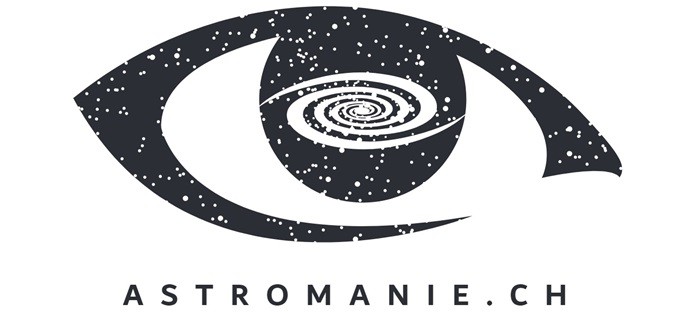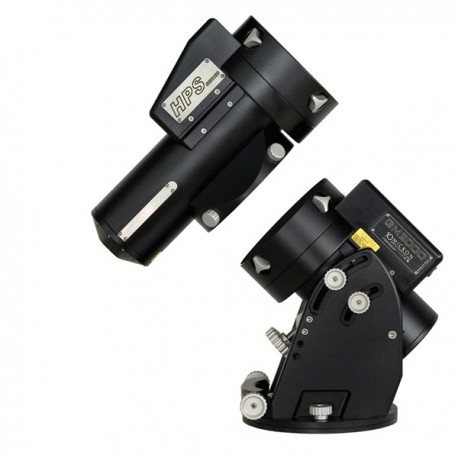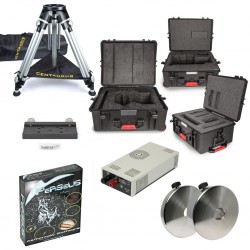No products
Prices are tax included
GM2000 HPS II Combi, 50 kg load capacity
GM2000 HPS II COMBI
New product
GM2000 HPS II Combi 50 kg load capacity
German "go to" equatorial mount, two separable parts body, exclusive 10Micron HPS technology with absolute axis-encoders and high performances motor drives; payload capacity of 50 Kg (110 lbs).
Available from March / April 2024
More info
GM2000 HPS II Combi 50 kg load capacity
Evolving perfection. The GM2000 HPS II Combi mount, is built for the demanding observer using photographic instruments up to a weight of 50kg – 110 lbs (counterweights not included). Movements are driven by two servo brushless motors , with timing belt reduction having zero backlash. Both axes feature a classic worm – wormwheel pairing. The wormwheels are made of bronze (B14), with a diameter of 172mm and 215 teeth, while the worms are made of alloy steel with a diameter of 24mm. The axes themselves are made of 50mm diameter alloy steel, for the maximum rigidity.
This mount is basically a GM2000 HPS II Ultraport (“splittable” in two parts) with an additional locking system; beside the quick locking system, very useful to carry and assemble the mount in the field, we added a further locking system for customers who have the mount permanently installed in an observatory; this will ensure a great , long-term stability, comparable to a GM2000 HPS II Monolith.
You can easily revert the mount in a portable (“splittable”) version simply removing the locking screws.In this way we can have both the advantages of the previous models in a single mount and so the new GM2000 HPSII Combi will replace both the Monolit and Ultraport models.
The technical specifications, sizes and weight of the new GM2000 HPSII Combi are exactly the same of the GM2000 HPS II.
The electronics is housed in an independent control box, easily removable. The connections of the mount and keypad feature secutiry lock screws. The mount can be controlled using the included keypad, without connecting an external PC. The keypad is built in order to maintain the maximum readability in all lighting conditions. Both the display and the ergonomic keys, allowing for the use of gloves, feature a red backlight. An heater keeps the display warm for usage below freezing temperatures.
The mount can be controlled using the most common software packages by connecting it to a PC with the RS-232 serial port or the Ethernet connection, via the 10micron ASCOM driver or the Meade compatible command protocol. Furthermore, a dedicated software (also included with the mount) can be used to create a “virtual keypad” replicating exactly the functions of the physical keypad. The RS-232 port can also be used to control an external dome. This flexibility makes the GM2000HPS an ideal mount for observatories and remotized observing sites. The object database contains many star catalogs and deep-sky objects up to the 16th magnitude. Solar system objects can be tracked so that their motion is compensated with respect to the stars. You may load orbital elements of comets, asteroids and artificial satellites into the mount, so that these objects can be tracked directly using the keypad (without any external PC).
Pointing is made accurate through the usage of a model containing up to 100 stars, which allows for the correction of the classical polar alignment and conic errors, and also of the most important flexure terms of the optical tube. In this way it is possible to obtain pointing accuracies of the order of 20 arcseconds RMS. The same model can be used in order to obtain the maximum tracking accuracy, compensating also for the atmospheric refraction (depending on the local atmospheric pressure and temperature). A series of auxiliary functions is provided to help the user for quick aligning the mount to the celestial pole. You may also save and recover the alignment data of different observing sessions. This function is very useful if you have many instruments in different setups, each one requiring different flexure corrections. Tracking through the meridian, a typical problem with german mounts, is solved allowing for tracking for up to 30° past the meridian (configurable), in both directions. In this way any object can be tracked for at least four hours.
The tracking accuracy makes autoguiding not necessary for many uses. The absolute encoders on both axes allows to obtain a typical tracking error below 1 arcsecond.

It is possible to autoguide anyway, using the ST4-compatible port or through the serial/Ethernet connection, with a guide rate configurable from 0.1x to 1x. The guide rate can be automatically corrected for the declination of the target, so that there is no need of recalibrating the autoguide when observing at different declinations. Among the other functions, you will find the electronically-assisted balance and the ability of parking the mount in different user-defined positions.
Designed for field use, the ultraportable version is easily divided into two parts. All electrical connections are made automatically when assembling the mount. The biggest piece has a weigth of only 15 kg – 33 lbs, and in combination with the Centaurus II (21 kg – 46 lbs) you obtain a winning combination for the mobile observer.
![]() The GM2000 can be supplied also in a special version for very low temperature operations: ask our team if interested.
The GM2000 can be supplied also in a special version for very low temperature operations: ask our team if interested.
| Type | German Equatorial Mount |
| Weight, Combi version (mount) | 18 kg – 40 lbs + 15 kg – 33 lbs without accessories |
| Instrument payload capacity | 50 kg – 110 lbs |
| Latitude range | 20° – 70° |
| Azimuth fine adjustment range | +/− 10° |
| Counterweight shaft | 40 mm diameter, stainless steel, weight 4 kg – 9 lbs |
| Axes | 50 mm diameter, alloy steel |
| Bearings | Pre-loaded tapered roller bearing |
| Worm wheels | 215 teeth, 172 mm diameter, B14 bronze |
| Worms | diameter 24mm, tempered alloy steel, grinded and lapped |
| Transmission system | Backlash-free system with timing belt and automatic backlash recovery |
| Motors | 2 axes servo brushless |
| Power supply | 24 V DC |
| Power consumption | ~ 0,7 A while tracking ~ 3 A at maximum speed ~ 5 A peak |
| Go-to speed | Adjustable from 2°/s to 20°/s |
| Pointing accuracy | < 20” with internal multiple-stars software mapping |
| Average tracking accuracy | < +/− 1" typical for 15 minutes (< 0.7" RMS) with internal multiple-stars software mapping and compensation of flexure and polar alignment errors |
| Security stop | +/− 30° past meridian in r.a. (software) +/− 45° past meridian in r.a. (mechanical) |
| Operational temperature range (standard) | - 15° C to + 35° C + 05° F to + 95° F |
| Storage temperature range | - 40° C to + 50° C - 40° F to +122° F |
| Special operational temperature range | Optional, for very low temperature (-30°C / -22°F ): see options for more details |
| Communication ports | RS–232 port; GPS port; autoguide ST-4 protocol port; Ethernet port |
| Database | Stars: by name, Bayer designation, Flamsteed designation, Bright Star Catalogue, SAO, HIP, HD, PPM, ADS, GCVS. Deep-sky: M, NGC, IC, PGC ,UGC limited up to mV = 16. Solar system: Sun, Moon, planets, asteroids, comets, artificial satellites. Equatorial and altazimuth coordinates. User defined objects, fast slewing positions. |
| Firmware features | User defined mount parking position, 2‑stars and 3‑stars alignment function, up to 100 alignment stars for modeling, correction of polar alignment and orthogonality errors, estimate of average pointing error, storage of multiple pointing models, sidereal, solar and lunar tracking speed adjustable on both axes, declination-based autoguide speed correction, adjustable horizon height limit, pointing and tracking past meridian,, assisted balance adjustment, manual or GPS based time and coordinates setting, dome control via RS-232, configurable atmospheric refraction, network settings, comets and asteroids filter, multi-language interface. Remote Assist via Internet connection. |
| PC control | Remote control via RS-232 or Ethernet; proprietary ASCOM driver or Meade compatible protocol; update of firmware and orbital elements of comets, asteroids and artificial satellites via RS-232 or Ethernet; virtual control panel via RS-232 or Ethernet. Wi-Fi included to control the mount via Tablet, Smartphone etc. |
Import charges (customs duties and transport costs) will be calculated and invoiced separately








